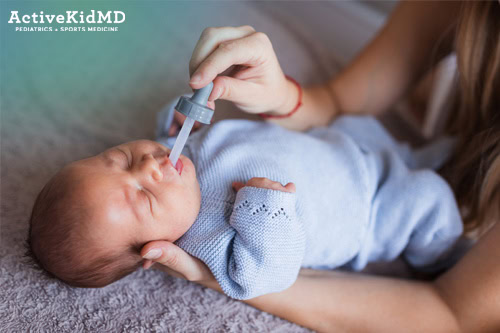One common question often asked of pediatricians “Does my child need to take a daily vitamin?”
For most otherwise healthy children, the short answer is “No.”
For children with certain health issues or demands, then the more nuanced answer is “Maybe.”
Let’s voyage into more detail about daily vitamins.
Ideally, a child should get the necessary vitamins and minerals through food and beverage sources. This allows for what we call collateral benefits (for example dairy has not just calcium but also protein and Vitamin D) and the vitamins tend to get better absorbed.

If we aren’t talking about “mega-dose” vitamin doses, there is probably limited risk. The main concerns would be the vitamin cost, time of remembering/convincing the child to take them, and perhaps some extra sugar exposure as many child vitamins are sweetened to make them easier for children to chew.
Now, how about the child who is a “picky eater” or doesn’t get certain food groups (due to health or perhaps cultural/religious practices)?
In these situations, what might be some key vitamins and minerals that could need daily supplementation?
CLICK HERE: RELATED TOPIC: FEEDING INFANTS, HOW TO MAKE MEALTIMES MORE ENJOYABLE
Let’s go through a few of them.
Newborns/infants and Vitamin D

Calcium/Vitamin D
- There are a fair number of children who cannot drink/eat cow-milk-based dairy products due to either intolerance or true allergy. Alternatives such as soy, rice, or almond milk can provide appropriate amounts of calcium (and protein/Vitamin D). Supplements with extra calcium might be beneficial for these children.
- All children need at least 400 International Units of Vitamin D every day, which can be found in fortified milk and dairy products (cow, almond, soy, or rice-based).
- Children who do not get regular sun exposure (10-15 minutes/day for 3-4 days/week), have darker skin tones, or do not get adequate intake of Vitamin D food/drinks might be at higher risk for Vitamin D insufficiency.
Iron
Iron is a key element for oxygen transportation and muscle function. Standard practice is to screen for iron deficiency in babies between 6-12 months of age where levels tend to be low (both in breast and formula-fed infants). Screening is done again for 2-year-olds as many children at this age do not like iron-rich foods (lean meat, dark poultry, redfish, beans, eggs, leafy vegetables, and raisins). Thankfully this changes around age 3 as many kids learn to enjoy iron-rich foods.
- For children who have a vegetarian or vegan diet without meat/fish/poultry sources, there might be a higher risk of iron deficiency. Screening for iron and red cell levels may be very sensible. Please speak with your pediatrician about this.
- In all cases of documented low iron, usual multi-vitamins may not have sufficient iron stores and prescription amounts of iron recommended by your pediatrician may be more appropriate.
- Remember that Vitamin C can help with iron absorption. Orange juice with iron-rich foods is a solid combination.
- Children without documented low iron but limited/no intake of iron-rich foods, a multivitamin with iron might provide a level of reassurance to parents.
CLICK HERE FOR:
RELATED TOPIC: IRON, FERRITIN AND WHAT ATHLETES SHOULD KNOW
For more information on vitamins and supplements, see:
If you have other questions about vitamins and supplements with newborns through high-level athletes, contact ActiveKIdMD and get answers from your trusted pediatric and sports medicine specialists.


 Iron is a key element for oxygen transportation and muscle function. Standard practice is to screen for iron deficiency in babies between 6-12 months of age where levels tend to be low (both in breast and formula-fed infants). Screening is done again for 2-year-olds as many children at this age do not like iron-rich foods (lean meat, dark poultry, redfish, beans, eggs, leafy vegetables, and raisins). Thankfully this changes around age 3 as many kids learn to enjoy iron-rich foods.
Iron is a key element for oxygen transportation and muscle function. Standard practice is to screen for iron deficiency in babies between 6-12 months of age where levels tend to be low (both in breast and formula-fed infants). Screening is done again for 2-year-olds as many children at this age do not like iron-rich foods (lean meat, dark poultry, redfish, beans, eggs, leafy vegetables, and raisins). Thankfully this changes around age 3 as many kids learn to enjoy iron-rich foods.